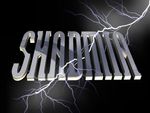



The problem with the word love is that it has so many different meanings, usually requiring a descriptive adjective to clarify its context; passionate, romantic and committed usually refer to various stages of sexual attraction, while familial, religious, platonic, narcissistic, altruistic etc. refer to relational or situational bonds from which a sense of security, pleasure or satisfaction is derived. I love: my wife, my brother, my new car, baseball, chocolate, my job and God; all have different meanings.
The "sexual attraction" form of love has been the subject of much scientific inquiry. It has long been known that there is a strong chemical component involved in falling in love, and new brain scanning studies have shown that love is not an emotion but a
motivation or drive:The early stages of a romantic relationship spark activity in dopamine-rich brain regions associated with motivation and reward. The more intense the relationship is, the greater the activity.
The regions associated with emotion, such as the insular cortex and parts of the anterior cingulate cortex, are not activated until the more mature phases of a relationship, says Helen Fisher, an anthropologist from Rutgers University in New Jersey.
Early on in a relationship, the images showed that the brain seems to be very focused on planning and pursuit of pleasurable reward, says Fisher, mediated by regions called the right caudate nucleus and right ventral tegmentum. The same regions become active when a person enjoys the pleasure of eating chocolate
There are also patterns that resemble aspects of
obsessive compulsive disorder."Activity in one particular area of the anterior cingulate cortex is in common," says Lucy Brown, a neuroscientist from Albert Einstein College of Medicine in New York. "The activity is correlated with the length of a relationship, lasting just into the emotional stage."
In a study by Serge Brand of the Psychiatric University Clinics in Basel, Switzerland, and his colleagues, 113 teenagers were asked about their conduct and mood and were asked to keep a log of their sleep patterns. Of those, 65 indicated they had recently fallen in love and experienced intense romantic emotions. The study concluded that the term
"madly in love" had some validity to it. The lovestruck teenagers
exhibited signs of hypomania, a mild form of mania.
Lovestruck Teenagers:
- Required about an hour less sleep each night
- More likely to report acting compulsively
- More than twice as likely to say they had lots of ideas and creative energy
- More likely to say they drove fast and took risks on the road.
"We were able to demonstrate that adolescents in early-stage intense romantic love did not differ from patients during a hypomanic stage," say the researchers. This leads them to conclude that intense romantic love in teenagers is a "psychopathologically prominent stage".

 Wednesday, November 14, 2007 at 1:16AM
Wednesday, November 14, 2007 at 1:16AM  Billionaires,
Billionaires,  Google,
Google,  Larry Page,
Larry Page,  Love,
Love,  Lucy Southworth,
Lucy Southworth,  Our World,
Our World,  Technology,
Technology,  news,
news,  tech
tech  Billionaires,
Billionaires,  Google,
Google,  Larry Page,
Larry Page,  Love,
Love,  Lucy Southworth,
Lucy Southworth,  Our World,
Our World,  Technology,
Technology,  news,
news,  tech
tech 




















